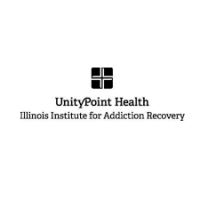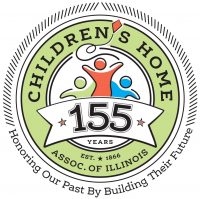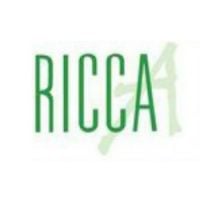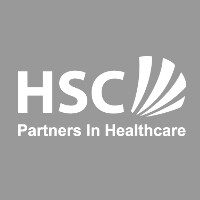New Directions Counseling
Drug Rehab Center in Princeton, Illinois
- Alcoholism
New Directions Counseling in Princeton, IL provides a comprehensive approach to sobriety with various levels of care, services, and accreditation to make recovery safely accessible and affordable through acceptation of private health insurance.
About New Directions Counseling in Illinois
New Directions Counseling is a premier addiction treatment facility located in Princeton, IL. They provide comprehensive care and treatment for individuals suffering from alcoholism or other substance abuse issues through out-patient, aftercare support and intensive outpatient levels of care. New Directions Counseling has been accredited by SAMHSA (Substance Abuse & Mental Health Services Administration) and holds a state license. Moreover, they accept private health insurance as well as payment plans to ensure the most cost-effective treatment options are available to those in need of their services.
At New Directions Counseling , their goal is to help individuals battling addiction develop healthy coping skills so that they can achieve long term sobriety. Through specialized therapy methods including cognitive behavioral therapy, dialectical behavior therapy and family systems approach, experts at this acclaimed facility enable recovery and foster trust which essential components in providing continuing care solutions. The facility also offers 12 step fellowship meetings, group activities attuned to the interests of recovering addicts such as education on nutrition manipulation among other topics with an aim of increasing self-awareness while empowering individuals along the path towards sobriety.
Genders
Ages
Modality
Additional
Accreditations
State License
SAMHSA
Conditions and Issues Treated
Levels of Care Offered
This center offers a variety of custom treatment tailored to individual recovery. Currently available are Aftercare Support, Intensive Outpatient, Outpatient, with additional therapies available as listed below.
An intensive outpatient treatment program, or IOP, is set up for those struggling with an addiction to begin the recovery process. However, the patient will not live at the facility during treatment.
IOP involves patients coming in and out of a medical office building regularly to receive therapy and other services while continuing their life outside of these visits.
IOP is a step up from drug detoxification or alcohol detox. However, it’s still considered a phase of recovery rather than the ultimate goal. There are many rehabs and treatment facilities available to patients in need of IOP.
Outpatient treatment can be considered the lowest intensity level of addiction treatment in Princeton, IL. It is ideal for early phase addiction or lower intensity addictions. New Directions Counseling peer group support, 12-step programs, and individual counseling are likely to be involved.
Aftercare support is vital to those who have completed a drug or alcohol treatment program. This support comes in individual and family counseling, treatment of psychiatric and other medical conditions, and medications to reduce cravings. It helps recovering addicts adjust to normal day-to-day activities and can last for a year or longer.
The majority of drug and alcohol addicts who receive aftercare treatment do not relapse. It is estimated that without aftercare, the relapse rate will be between 70 to 90 percent for most people. Aftercare is the final stage in addiction recovery, but it will also help maintain sobriety if relapse does occur.
Therapies & Programs
Individual therapy is ideal for addicts who want to focus on themselves. It can also be helpful for those whose withdrawal symptoms are exacerbated by the presence of other people.
Benefits of individual therapy are:
- Access to a personalized treatment plan that focuses on the individual needs of the addict
- More privacy during treatment sessions
- Better personal development through introspection
- Increased self-awareness regarding addictive tendencies in order to avoid relapse
- Greater potential for a long-term recovery plan
- Receiving professional advice and detox assistance from medical staff
This is when a group of people in various stages of recovery meet up and discuss their experiences, triggers, successes, failures, and even alternative therapies! Unlike support groups where everyone already knows each other, group therapy is conducted along side outpatient or inpatient treatment at New Directions Counseling.
Trauma therapy is a clinical process that helps individuals deal with mental stress often caused by traumatic events. The therapist helps the person identify, understand and work through the problem. This is done with the help of talking about it in group or one-on-one counseling sessions.
Therapists use relaxation, role-playing, art, and music to help the person open up about what is bothering them. Some examples include:
- Talking about the traumatic event and how it affected them.
- Helping those who have PTSD to deal with their nightmares and recurring memories.
- Working with individuals to resolve the issues triggering the stress, whether seeing someone who reminds them of what happened or feeling helpless.
The individual is also encouraged to help others that are struggling with similar problems. This often helps them feel empowered and gives them hope.
Trauma therapy is not for everyone; it is usually reserved for people who have recently experienced a traumatic event and struggle to get over it. It is generally done for children, teenage victims of sexual assault, and war veterans.
Dialectical Behavior Therapy (DBT) is used by drug treatment centers across the United States to help drug addicts become sober. DBT is a type of Cognitive Behavioral Therapy (CBT) that combines traditional behavioral treatments with elements from DBT, including dialectics, distress tolerance, and interlocking issues. Some of the negative behaviors associated with addiction, such as impulsivity and mood swings, are addressed in DBT, while others like craving and isolation are not. It is commonly used to treat Borderline Personality Disorder (BPD) along with substance abuse disorders.
The four DBT modules are mindfulness, interpersonal effectiveness, emotion regulation, and distress tolerance:
- Mindfulness helps recovering addicts learn to identify and experience their emotions while realizing that they are not permanent.
- Interpersonal Effectiveness includes assertiveness, asking for what you need, and saying no while improving communication skills.
- Distress Tolerance has recovering addicts learn how to tolerate distress at the moment and avoid resorting to substance abuse.
- Emotion Regulation is used to identify, express and change emotions.
CBT is a psychotherapy approach and method. [ws-nap-name] people to examine how their thoughts, including habitual harmful and inaccurate thinking, affect their actions. CBT is based on the idea that rigid, inflexible thinking leads to poor stress management, which leads to emotional distress.
Similarly, CBT helps people identify and change negative behaviors. It makes you question your perceptions and ask if they are realistic. CBT asks people to examine their behaviors and emotional responses and how they affect their lives. CBT aims to change people’s thinking and behavior to lead a more balanced and healthy life.
Moreover, CBT has been shown to reduce anxiety disorders, depression, and symptoms associated with harmful thoughts or actions.
The results of Rational Emotional Behavior Therapy treatment are clear. It seeks to help you in the short term rather than being lifelong treatment. Rational Emotional Behavior Therapy addresses the root issue of an individual’s emotional distress. It is proven effective with substance use disorders, which can help break a spiral of negative thinking. A drug rehab center that uses REBT is more likely to be successful. It creates lasting changes in a patient’s behavior, and this can improve your quality of life.
Those struggling with addiction can benefit from learning certain life skills. It is not as simple as quitting drinking or taking drugs and thinking that the hard part is over. Being sober means living a whole new way of life. Many recovering addicts have found that they need to develop talents like time management, organization, communication skills, socialization skills, and self-esteem to make their life in sobriety work, New Directions Counseling is here to help with that.
Payment Options Accepted
For specific insurance or payment methods please contact us.
Is your insurance accepted?
Ask an expert, call (888) 674-0062
Additional Details
Specifics, location, and helpful extra information.
Princeton, Illinois 61356 Phone Number(815) 875-2192 Meta DetailsUpdated November 25, 2023
Staff Verified
New Directions Counseling Patient Reviews
There are no reviews yet. Be the first one to write one.
Princeton, Illinois Addiction Information
In 2016, more than 2,350 Illinoisans died from drug overdoses. More than 5,500 deaths annually occur in Illinois due to the abuse of alcohol and other drugs. 7.17% of Illinois residents reported using illicit drugs in the past month (2018). Substance abuse costs the state approximately $3.5 billion every year.
Treatment in Nearby Cities
- Belleville, IL (199.1 mi.)
- Dekalb, IL (53.4 mi.)
- Orland Park, IL (85.3 mi.)
- Beardstown, IL (106.3 mi.)
- West Chicago, IL (74.2 mi.)
Centers near New Directions Counseling




The facility name, logo and brand are the property and registered trademarks of New Directions Counseling, and are being used for identification and informational purposes only. Use of these names, logos and brands shall not imply endorsement. RehabNow.org is not affiliated with or sponsored by New Directions Counseling.


